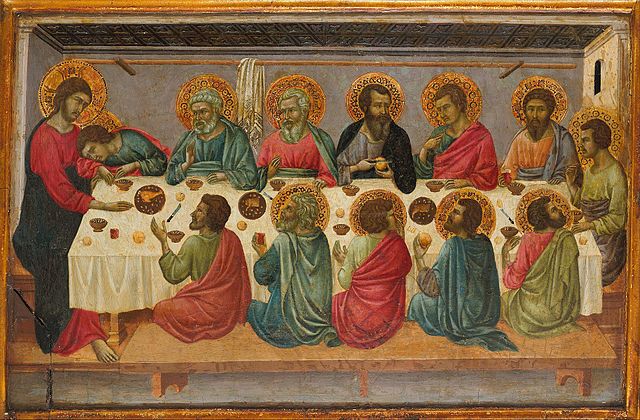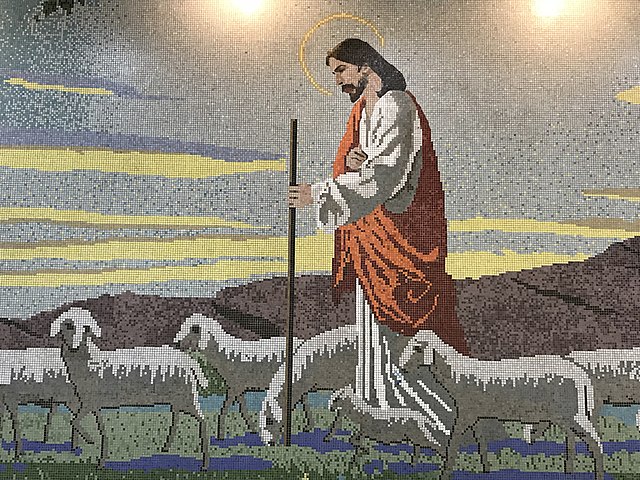
This weekend’s hymn from Sing Praise is “Love is his word” by Luke Connaughton. The theme is the love of Jesus Christ, as celebrated in the refrain: “Richer than gold is the love of my Lord, better than splendour and wealth”. This idea that God’s love is the true wealth, not a human invention such as ‘money’, is a common one in religious teachings generally, not least in Christianity. Paul’s words to Timothy come to mind: “In godliness with contentment there is great gain” (1 Timothy 6:6).
Its verses list the ways that Jesus Christ showed (and shows) his love for people. The words are cleverly structured: there are seven verses, a ‘Biblical’ number like the seven signs in John’s gospel or the seven seals of Revelation. Each starts with a line in the form Love is his X, Love is his Y”, with a last line “Love, only love, is his Y”, and the Y of one verse becomes the X of the next (so, verse 1 ends “Love, only love, is his way” and verse 2 begins “Love is his way, love is his mark”. The two middle lines of each verse elaborate on the ‘Y’. The hymn ends with a verse on Jesus the Word (taking us back to the opening line).
The seven ways that Jesus shows his love then, are: way, mark, sign, news, name, law and word. His way of love is “feasting with all, fasting alone”; his mark is “sharing his last Passover feast” (the Last Supper before his crucifixion); his sign, as he commanded us to remember him, is “bread for our strength, wine for our joy”. His news, still on the communion feast, is “Do this, lest you forget all my deep sorrow, all my dear blood”. His name is explained as that “we are his own, chosen and called”. His law is “Love one another [as] I have loved you”. And back to the Word, we are reminded that Jesus’ love is also that of the Father and Spirit.
The metre (8.8.9.7 & refrain 10.7) is highly unusual and so I presume the tune (‘Cresswell’ by Anthony Milner) was written for it. It’s an easy one to sing, with a memorable refrain in particular, finishing on a high with “better than splendour and wealth”.



